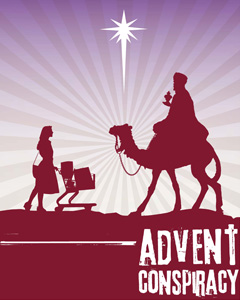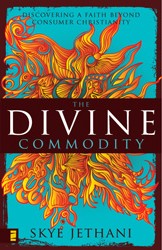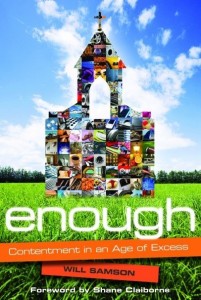 The feature article in the latest issue of The Atlantic discusses the influence of the prosperity gospel on the financial crisis. It also talks about some of the ideas behind this doctrine and, worse, some of the racist behaviour of banks teaming up with pastors to rip off Latinos and African Americans.
The feature article in the latest issue of The Atlantic discusses the influence of the prosperity gospel on the financial crisis. It also talks about some of the ideas behind this doctrine and, worse, some of the racist behaviour of banks teaming up with pastors to rip off Latinos and African Americans.
The article makes the point that among the many reasons given for the crash is one “that speaks to a lasting and fundamental shift in American culture-a shift in the American conception of divine Providence and its relationship to wealth.”
The alarming increase of the prosperity gospel in the United States is seen in the fact that ‘other Christians’ apart from Penetecostals, among whom this doctrine has had its most influence are stung with this virus as well. Pew research has found that “66 percent of all Pentecostals and 43 percent of “other Christians”-a category comprising roughly half of all respondents-believe that wealth will be granted to the faithful”
One of the main peddlers of the prosperity gospel is Joel Osteen, pastor of the largest megachurch in the US. The article makes the observation that he uses very little Scripture in his books and sermons. I find this true of most preachers of Osteen’s persuasion. I have also found that when they do use Scripture, it is almost always from the Old Testament. Not that the Old Testamen is not as much the Word of God as the New Testament, but you will very rarely hear one of these preachers quote Jesus – quite ironic for people who claim to be his followers. Osteen’s message is more like positive thinking than Scriptural commands to take up our cross and follow on the road.
As with any heresy though, the prosperity gospel contains grains of truth. The problem is that they’re twisted to be made to say pretty much the total opposite of what they actually mean. Take this comment by Osteen that we should “wake up every morning and tell yourself, “God is guiding and directing my steps.” This is more like a ‘my will, not Thine, be done’ attitude. Rather, a biblical attitude says to wake up every morning and ask God to guide my steps that day. His will, not mine, be done.
In an article last year about the financial crisis, I said that
“one of the reasons the prosperity gospel is so disastrous is because, when events like this come along, they will turn alot of people away from God as they become disillusioned with what they have been taught about God’s apparent desire for them to be wealthy.”
The hope for these people though is that, as Rikk Watts has said, “if someone is running from a false view of God, are they further from him or closer to him?’ Interesting thought to ponder.
In detailing the influence of the prosperity gospel on the financial crash, the article points out that
“in 2008, in the online magazine Religion Dispatches, Jonathan Walton, a professor of religious studies at the University of California at Riverside, warned: Narratives of how “God blessed me with my first house despite my credit” were common … Sermons declaring “It’s your season of overflow” supplanted messages of economic sobriety and disinterested sacrifice. Yet as folks were testifying about “what God can do,” little attention was paid to a predatory subprime-mortgage industry, relaxed credit standards, or the dangers of using one’s home equity as an ATM.”
Continuing this point, it adds,
“Demographically, the growth of the prosperity gospel tracks fairly closely to the pattern of foreclosure hot spots. Both spread in two particular kinds of communities-the exurban middle class and the urban poor. Many newer prosperity churches popped up around fringe suburban developments built in the 1990s and 2000s, says Walton. These are precisely the kinds of neighborhoods that have been decimated by foreclosures, according to Eric Halperin, of the Center for Responsible Lending.”
The article also makes the point that “most new prosperity-gospel churches were built along…areas that were hard-hit by the mortgage crisis.” Another researcher quoted in the article, Kate Bowler, “spent a lot of time attending the “financial empowerment” seminars that are common at prosperity churches. Advisers would pay lip service to “sound financial practices,” she recalls, but overall they would send the opposite message: posters advertising the seminars featured big houses in the background, and the parking spots closest to the church were reserved for luxury cars.”
Perhaps the most evil legacy of the prosperity gospel is that its adherents will stoop to the most pernicious form of racism to get their dollars, exploiting the poor and non-white Latinos and African Americans. The article says that,
“at least 17 lawsuits accusing various banks of treating racial minorities unfairly were already under way. (Bank of America’s Countrywide division-one of the companies Garay worked for-had earlier agreed to pay $8.4 billion in a multistate settlement.) One theme emerging in these suits is how banks teamed up with pastors to win over new customers for subprime loans.”
The prosperity gospel has its roots in the USA, but its tenticles have spread to all parts of the world, from Africa to Australia. It is not good news; it is a ‘gospel’ which is held captive to a culture in which the dream of material wealth is the highest goal of humanity. It is a nationalist, me-centred heresy. Consider the following from the article:
“In their new congregation, their pastor slowly walks them through life in the U.S., both inside and outside of church, until they become more confident. “In Mexico, nobody ever told them they could do anything,” says Lin, who was himself raised in Argentina. He finds the message at prosperity churches to be quintessentially American. “They are taught they can do absolutely anything, and it’s God’s will. They become part of the elect, the chosen. They get swept up in the manifest destiny, this idea that God has lifted Americans above everyone else.”
The false view of faith that sees their riches as a gift from God is another common form of delusion amongst those held captive. Researcher Tony Lin says,
“I wasn’t very surprised when the whole subprime-mortgage thing blew up. I’m sure a loan officer never said, ‘God wants you to have a house.’ But you’ve already been taught that. Now here comes the loan officer saying, ‘Sign here, and this house will be yours.’ It feels like a gift from God. It’s the perfect fuel for the crisis.”
The financial crisis has done little to dampen the evangelistic fervour of the prosperity gospellers. From the distance, from the sidelines of the noise and glamour of the churches from which this message is proclaimed, whispers the quiet voice of the Man of Sorrows – ‘“No one can serve two masters. Either you will hate the one and love the other, or you will be devoted to the one and despise the other. You cannot serve both God and Money”.
 There’s some great stuff out there on the web if you’re tired of the consumerist madness that characterises this time of the year we call the ‘silly season’. I recently came across the website of a group called Advent Conspiracy. They are a group of concerned pastors in the US who want to take us back to what Christmas is really about – the birth of the Prince of Peace, the One who gave himself for all. I love their logo on the left. Such a prophetic message, showing a shopper with a trolly full of goods coming face to face with one of the 3 wise men, come to worship the King. The Advent Conspiracy movement is catching on, as you can see from a map on their website showing others who are doing what they can to celebrate Jesus at Christmas. Here’s what they say about themselves:
There’s some great stuff out there on the web if you’re tired of the consumerist madness that characterises this time of the year we call the ‘silly season’. I recently came across the website of a group called Advent Conspiracy. They are a group of concerned pastors in the US who want to take us back to what Christmas is really about – the birth of the Prince of Peace, the One who gave himself for all. I love their logo on the left. Such a prophetic message, showing a shopper with a trolly full of goods coming face to face with one of the 3 wise men, come to worship the King. The Advent Conspiracy movement is catching on, as you can see from a map on their website showing others who are doing what they can to celebrate Jesus at Christmas. Here’s what they say about themselves:










